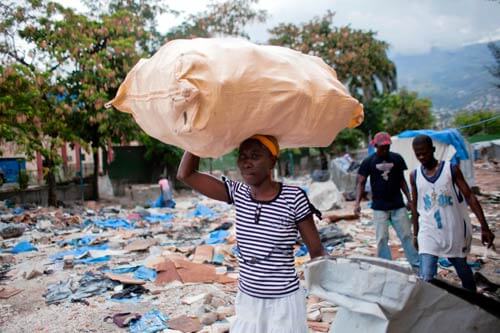PORT-AU-PRINCE, Haiti (AP) — Haiti has violated international human rights obligations by failing to protect people who have been forced to leave the impromptu settlements that sprang up in the Caribbean nation after the 2010 earthquake, a global advocacy group said Tuesday.
A report by Amnesty International said it found that thousands of displaced people have been evicted from public spaces and private properties. People kicked out of settlements find themselves “further marginalized and driven deeper into poverty,” it said.
The government of President Michel Martelly has condoned the evictions led by mayors, police officers and others, the report charged.
“They are tolerated by the state and carried out in total impunity by state agents and private individuals or groups (non-state actors) alike,” it said.
Amnesty said it wrote to Martelly, the prime minister and mayors of two cities that have seen evictions in an effort to arrange meetings with them, but the requests were declined or went unanswered.
Haitian Prime Minister Laurent Lamothe told The Associated Press Monday night that there were “some” landowners who were responsible for forced evictions but it was not something the government endorsed.
“We don’t believe in forced evictions,” Lamothe said by telephone. “There are some private owners that do it, but the government itself does not condone that.”
Lamothe cited a government-led effort that pays rental subsidies to camp residents. He said it has “relocated over 1.2 million people and has respected their lives and in a peaceful matter. Our policy is respecting their lives and relocating them in a peaceful manner.”

AP Photo/Dieu Nalio Chery

























